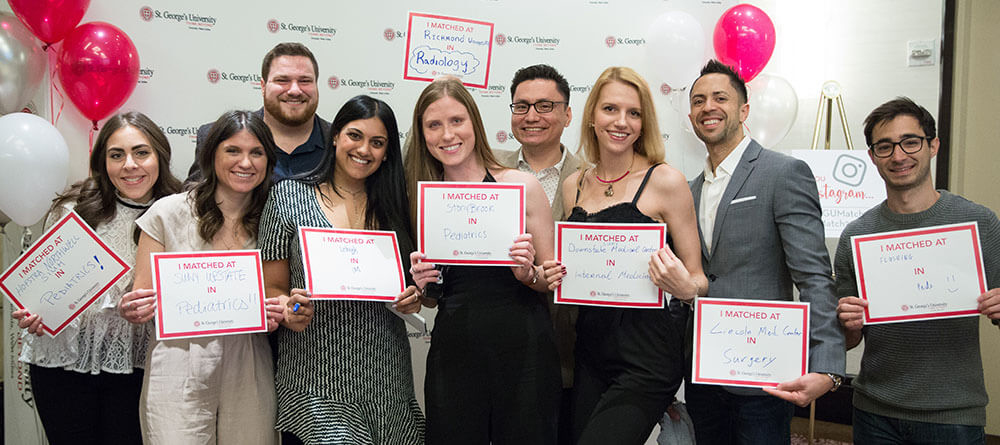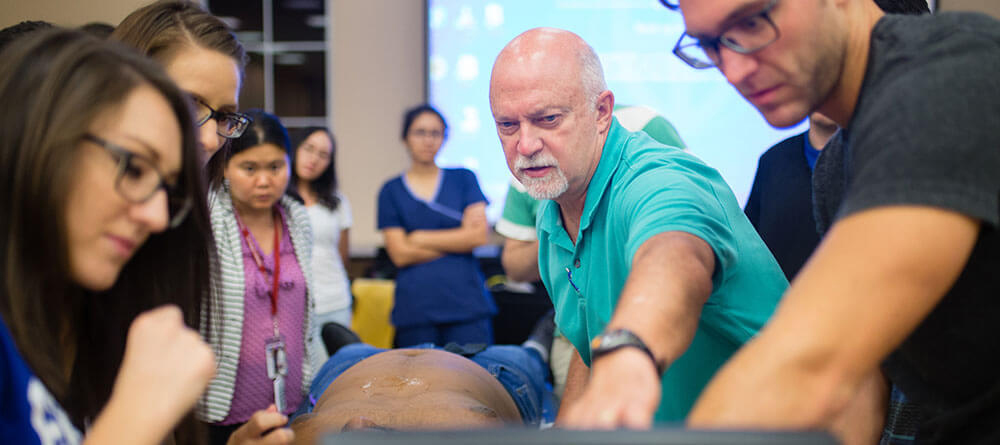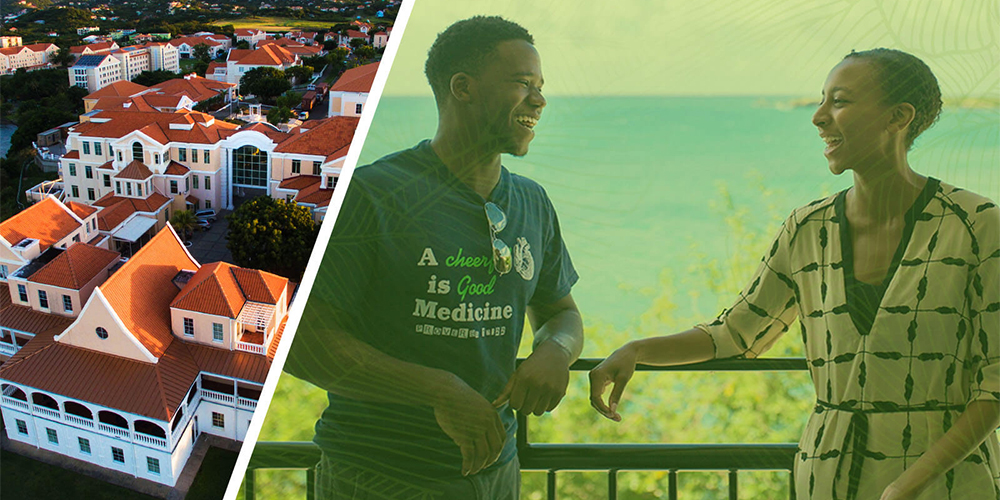As you’ve researched international medical schools, you may have learned a bit about St. George’s University (SGU). The prospect of going to a Caribbean medical school can be both exciting and anxiety-inducing at the same time.
But before you make any decisions, it’s helpful to gather as much information about your prospective Doctor of Medicine (MD) programs as you can.
The SGU School of Medicine isn’t just any Caribbean MD program. This highly respected Grenada medical school might surprise you in more ways than one. Read on to learn more about the dynamic opportunities available to medical students at SGU.
5 ways this Grenada medical school is making waves
Putting students first is a big part of what makes St. George’s University stand out. But That’s just one way the School of Medicine exceeds expectations. To gain a clearer picture of what you can expect at SGU, consider the following.

1. SGU sets students on the path to postgraduate success
Medical school is just the beginning of any future physician’s journey. Completing your postgraduate training is arguably more important than just the school itself, so securing a residency is critical.
St. George’s University students continue to prove they’re ready for this next stage of their education. In fact, SGU has placed more than 980 graduates into US residencies in 2022, with that number continuing to rise.1
2. SGU is addressing the primary care shortage
Perhaps you’ve read articles or seen news segments about the impending physician shortage. Evidence suggests that the demand for primary care doctors will far surpass the supply over the next few decades. In fact, the Association of American Medical Colleges (AAMC) predicts the US could be short 55,200 primary care physicians by 2033.
SGU is doing its part to help close the gap. More than 70 percent of its US residency placements in 2022 were in primary care specialties.2 That said, students are free to pursue any specialty. Graduates have also successfully matched into competitive fields, such as emergency medicine and surgery.

3. SGU is making global contributions
There’s been a stigma surrounding Caribbean medical schools for decades. Naysayers fuel rumors that leaving the US for medical school means you aren’t good enough or smart enough to become a doctor. But SGU is changing that perception. Students are beginning to recognize that gaining a diverse cultural experience is actually an advantage.
In addition to the modern facilities and strong graduate outcomes, students clearly value gaining international experience. Physicians who were trained at SGU maintain a robust presence across the US and beyond, with SGU graduates having gone on to practice in more than 50 countries around the world.
4. SGU students have all the resources they need available to them
While some medical schools have maintained a pretty rigid process for evaluating applications, SGU champions holistic reviews. This means each applicant is reviewed in a way that considers their academic metrics, life experiences, and personal attributes. This is important, because research suggests that relying too heavily on grades and test scores could mean discounting students who would be great physicians.
SGU strives to admit students who exhibit strong potential and then gives them the tools they need to succeed. Students with a few academic blemishes or those who’ve been out of school for a while, for example, may be admitted into the Academic Enhancement Program (AEP). The program offers another layer of support as students are getting used to rigors of medical school.
The suite of support services has proven to be effective in preparing students for success on important exams. SGU has tallied a 92 percent USMLE Step 1 pass rate for first-time test-takers over the last three years.3

5. SGU fosters a dynamic learning environment
Don’t let the secluded island location fool you—SGU’s campus has plenty of technological advancements just as one would expect at a US medical school. There’s even a simulation center that incorporates standardized patients to help students understand what it’s like to work with real people. Medical students will also be introduced to different techniques and instruments, providing them with hands-on clinical experience before they even enter their clinical rotations.
The rest of the campus is just as impressive. There are lecture halls, libraries, restaurants, and a new fitness facility. The picturesque setting is just an added perk.
Of course, education quality really comes down to having great educators. All of the instructors at SGU, whether in the basic sciences or clinical department, are seasoned professionals in their fields.
Begin your Caribbean medical school journey
You now have a better sense of how St. George’s University supports students and the medical community as a whole—there’s clearly more to this Grenada medical school than you may have first thought.
If you have additional questions about what life as an SGU student entails, don’t hesitate to reach out to a graduate who can provide you with a firsthand account. If you feel like St. George’s University could be the right medical school for you continue your research by requesting more information today.
1As the medical school graduating the largest number of students annually, SGU places the largest number of graduates into residency programs each year, based on internal SGU graduate and residency placement data (as of May 2022).
2According to 2022 SGU residency placement data.
3Average of 2019, 2020, 2021 scores. First-time pass rate is defined as the number of students passing USMLE Step 1 on their first attempt divided by the total number of students taking USMLE Step 1 for the first time. In order to be certified to take USMLE Step 1, students are required to pass all basic sciences courses.
*This article has been updated from a previous version to include current facts and figures.

